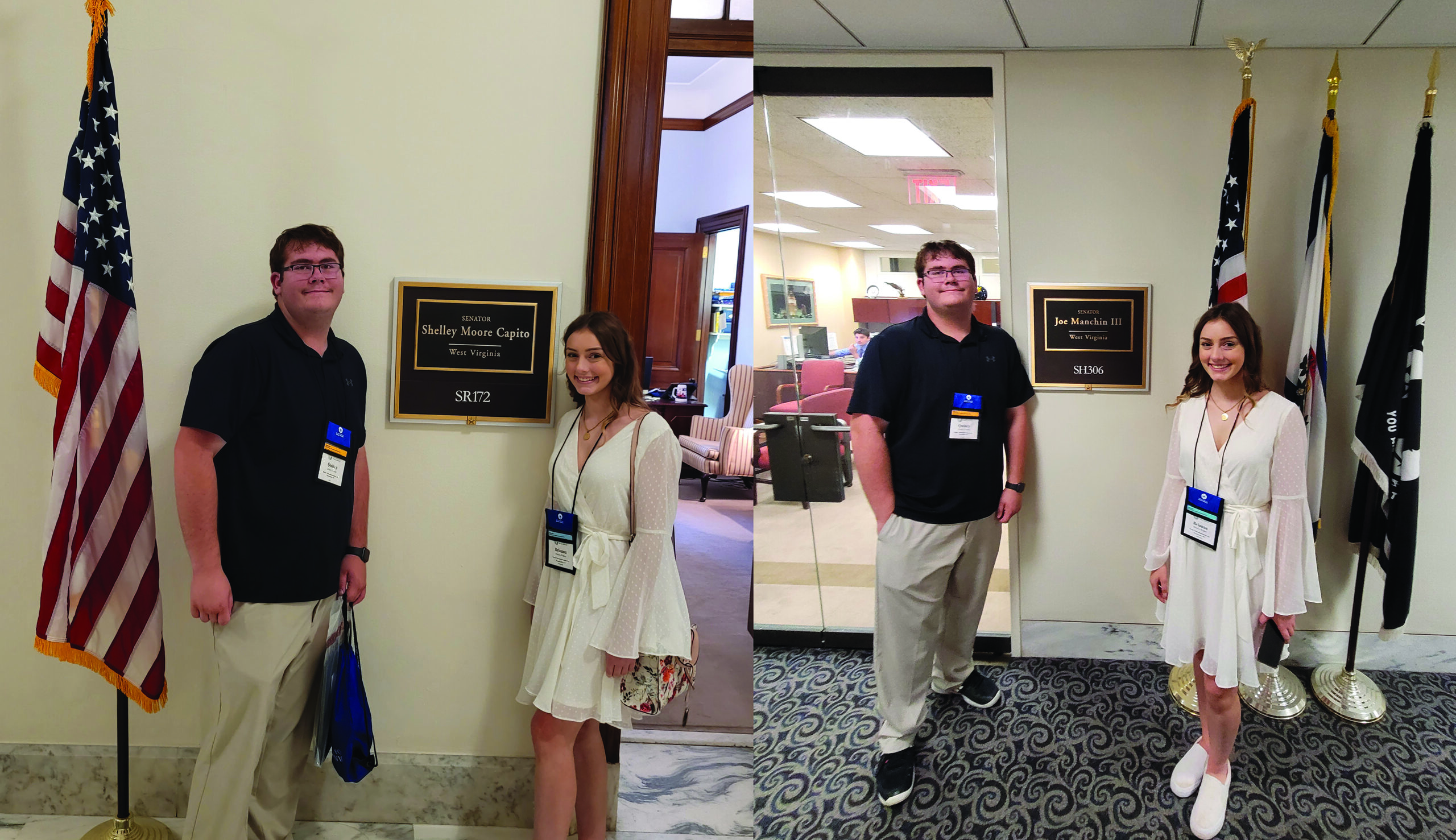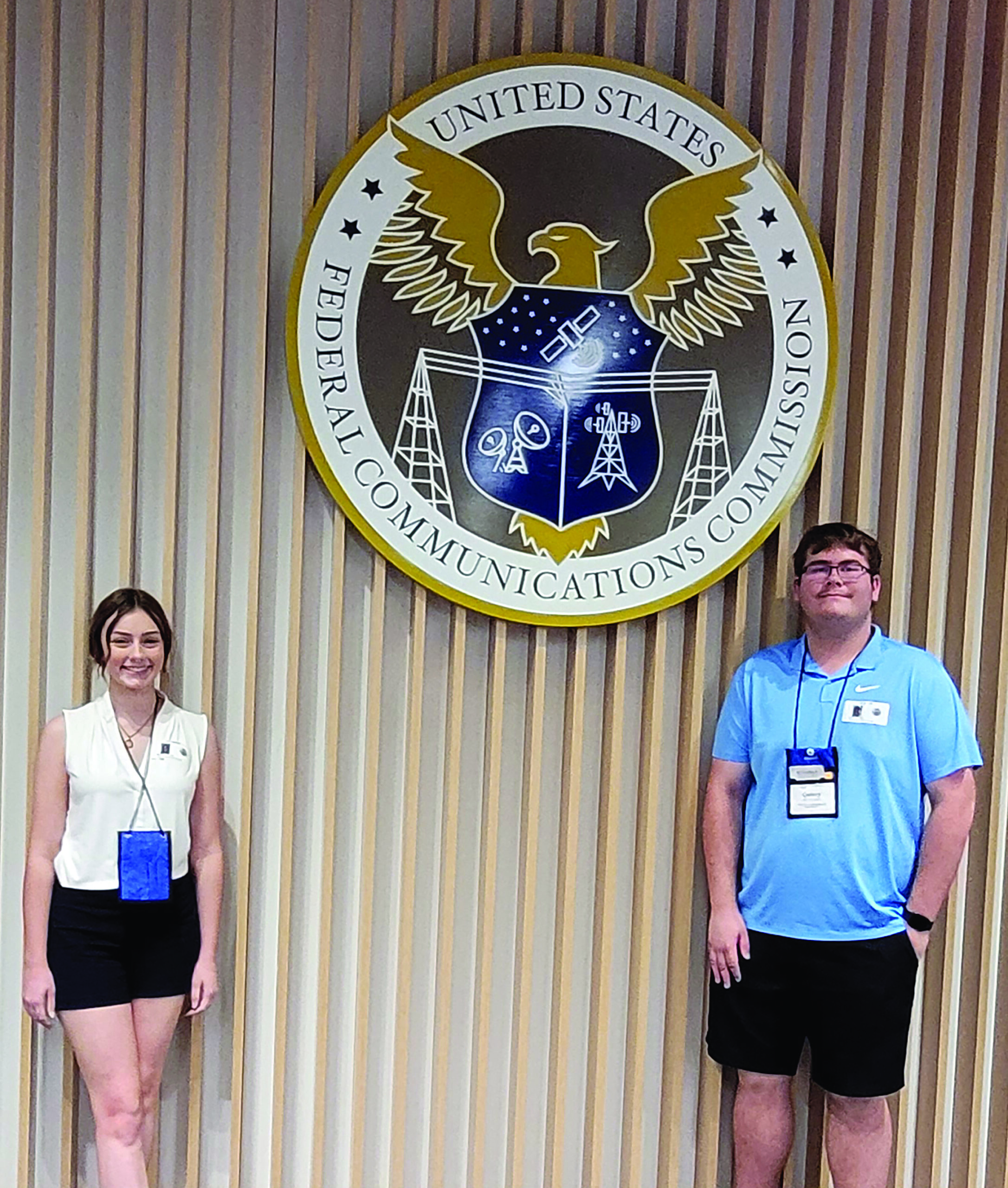
Two Hardy County rising seniors thanked Hardy Telecommunications for the “phenomenally successful” and “once-in-a-lifetime experience” of their four-day educational tour of our nation’s capital.
“This opportunity has led me to make lifetime friendships and has a great basis for networking in the future,” said Moorefield High School student Quincy Combs.
“I had such a wonderful experience on the FRS (Foundation for Rural Service) Youth Tour,” said East Hardy High student Brianna Walker.
Quincy and Brianna were sponsored by Hardy Telecommunications to attend the FRS Youth Tour in Washington, D.C., from May 31-June 4. The trip included sightseeing to some of the nation’s most popular and historic monuments as well as educational sessions with visits to the U.S. Capitol and the Federal Communications Commission. Hardy Tel paid all expenses for the pair.
Along with hearing from Capitol Hill staff members and visiting the offices of West Virginia Senators Shelley Moore Capito and Joe Manchin III, the students also learned about the telecommunications industry and the FCC’s impact on rural broadband. FCC Commissioner Brendan Carr addressed the students and took questions about various aspects of his job.

Quincy and Brianna were two of almost 100 students from around the country who attended the Youth Tour. Each student was sponsored by a rural telecommunications company. The tour is designed to introduce the students to some of the challenges that companies like Hardy Telecommunications face in trying to deliver modern broadband to rural areas.
“As a student interested in pursuing a degree in law following high school graduation, the FRS Youth Tour reinforced that exact idea, as I was able to see firsthand just how our nation’s government works,” Brianna said.
The chance to meet peers from other areas of the United States is another valuable benefit of the tour. Students came from as far away as Cordova, Alaska, which is accessible only by plane or ferry.
“My favorite part of the week would have to be meeting the many other students,” Brianna said. “… All these individuals share the same rural background, facing many of the same challenges we do in Hardy County. One prominent issue is access to broadband connectivity, which thankfully is made possible to me through Hardy Telecommunications and the FCC’s efforts.”
The group also toured Arlington National Cemetery, the Smithsonian Museums, Mount Vernon, and the Lincoln, Vietnam War, Korean War, World War II, Jefferson, Franklin D. Roosevelt and Martin Luther King Jr. memorials. Through a special donation from the Tim Owens Memorial Fund, the students were able to attend the play “Shear Madness” at the Kennedy Center. Mr. Owens was the first executive director of FRS.
Quincy said he was struck by many of the stops on the tour.
“The Capitol is beautiful, and I would recommend anyone to schedule a visit to the ‘people’s house,’” he said. “…The museums I toured included the Holocaust Museum and the American History Museum.
“One of my favorite places on this trip was Arlington National Cemetery,” he said. While there, the students were able to watch the Changing of the Guard ceremony at the Tomb of the Unknown Soldier.
“This was such a solemn place and one that brought chills that illustrated the ultimate price of freedom,” he said.
Both students said the tour was a learning experience they won’t forget.
“This trip made me realize that we have such great freedoms that many take for granted,” Quincy said. “Again, I would like to thank Hardy Telecommunications for sponsoring me.”
Brianna agreed.
“I would like to thank Hardy Telecommunications for opening this educational outlet,” she said. “I truly had an amazing time throughout the FRS Youth Tour, and it would not have been possible without their gracious sponsorship.”
The Foundation for Rural Service (FRS) was established in 1994 as a non-profit 501(c)(3) by NTCA-The Rural Broadband Association. FRS programs advance rural communities by focusing on education for rural youth, encouraging community development and introducing policymakers to the challenges of providing broadband services in rural communities.
